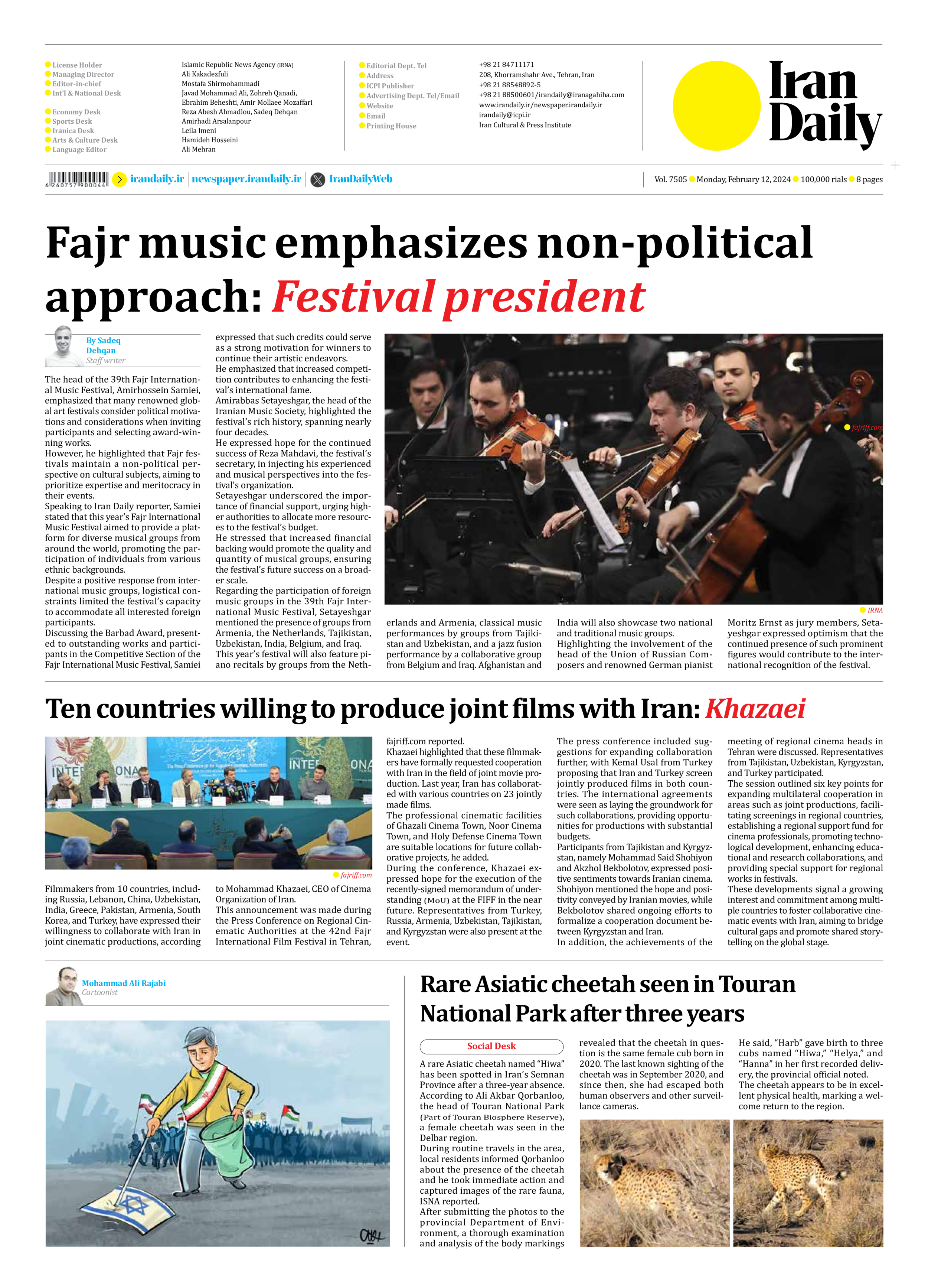
Fajr music emphasizes non-political approach: Festival president
By Sadeq Dehqan
Staff writer
The head of the 39th Fajr International Music Festival, Amirhossein Samiei, emphasized that many renowned global art festivals consider political motivations and considerations when inviting participants and selecting award-winning works.
However, he highlighted that Fajr festivals maintain a non-political perspective on cultural subjects, aiming to prioritize expertise and meritocracy in their events.
Speaking to Iran Daily reporter, Samiei stated that this year’s Fajr International Music Festival aimed to provide a platform for diverse musical groups from around the world, promoting the participation of individuals from various ethnic backgrounds.
Despite a positive response from international music groups, logistical constraints limited the festival’s capacity to accommodate all interested foreign participants.
Discussing the Barbad Award, presented to outstanding works and participants in the Competitive Section of the Fajr International Music Festival, Samiei expressed that such credits could serve as a strong motivation for winners to continue their artistic endeavors.
He emphasized that increased competition contributes to enhancing the festival’s international fame.
Amirabbas Setayeshgar, the head of the Iranian Music Society, highlighted the festival’s rich history, spanning nearly four decades.
He expressed hope for the continued success of Reza Mahdavi, the festival’s secretary, in injecting his experienced and musical perspectives into the festival’s organization.
Setayeshgar underscored the importance of financial support, urging higher authorities to allocate more resources to the festival’s budget.
He stressed that increased financial backing would promote the quality and quantity of musical groups, ensuring the festival’s future success on a broader scale.
Regarding the participation of foreign music groups in the 39th Fajr International Music Festival, Setayeshgar mentioned the presence of groups from Armenia, the Netherlands, Tajikistan, Uzbekistan, India, Belgium, and Iraq.
This year’s festival will also feature piano recitals by groups from the Netherlands and Armenia, classical music performances by groups from Tajikistan and Uzbekistan, and a jazz fusion performance by a collaborative group from Belgium and Iraq. Afghanistan and India will also showcase two national and traditional music groups.
Highlighting the involvement of the head of the Union of Russian Composers and renowned German pianist Moritz Ernst as jury members, Setayeshgar expressed optimism that the continued presence of such prominent figures would contribute to the international recognition of the festival.







